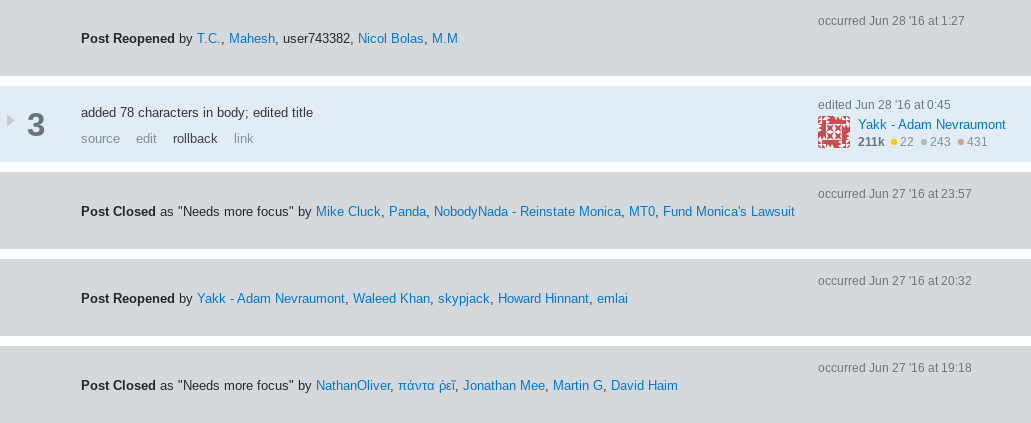Let's look at this from a practical perspective. The most fundamental difference between the C++17 question and the C++20 question was that the C++17 question was self-answered. The point of closing a question is to prevent it from being answered, so self-answering a question on some level makes question closure less important. And for an answer where edits are encouraged like the C++17 one, closing the question is at best a symbolic gesture.
The horse left the stable the moment you put him in the barn; closing the door isn't helping.
I'm making no value judgments here; I'm not claiming at this point that this state of affairs is good or bad. But this is the effect of the rules we have. The primary mechanism for the community to enforce its rules is question closure to prevent answering. If you self-answer a question, closure becomes a lot less relevant, and thus enforcement as a practical matter is less capable.
So while it may not be our intent for self-answered questions to be able to skirt the rules, that is the way it works out in practice. The only moderation mechanism left after closure is deletion, which requires that the question either attract enough downvotes or direct moderator intervention.
So this is not favoritism per-se. It's simply the result of whether you're posting because you want the answer or you're posting because you want to create a useful artifact for the answer you already more-or-less have. The latter is rewarded because it creates an immediately useful artifact, and it's "allowed" because there's basically nothing that can be done to stop it.
The difference in voting comes from a similar place. Some people will see the question as a violation of our rules and downvote. Others may see it as a useful artifact, but they are far more likely to do so if it actually contains the information they're looking for. This is why there's a 20:1 upvote/downvote ratio on the C++17 question, while the C++20 one is in the negatives.
As for whether having this loophole is good, I would say... maybe.
The common legalistic argument is that any question which lives on the site that violates the rules, by merely existing, is an argument for another such question. And it's hard to argue against that because we wouldn't be having this discussion otherwise.
The common argument in favor of the question is that, it adds value to the site. I've referred to it many times myself, Google will find it for you very easily, and nowhere else on the entire Internet has a better, more digestible collection of virtually everything in C++17. Having this information is making the Internet better, which is supposed to be our founding principle.
The legalistic counter-argument is that our rules exist, not because they only cull out garbage, but because the few good artifacts produced by such questions aren't worth allowing the torrents of trash that the rules filter out.
And yet, the C++20 question was downvoted and closed. It's not going anywhere. Though we are discussing this because of the existence of the C++17 question, the actual harm that can be attributed to that question consists of... a quickly closed question and a discussion. So, from a purely practical, utilitarian perspective, the C++17 question's existence has caused far more good than harm.
Personally, I lean against the legalistic viewpoint. I don't feel comfortable with the rigidity, and I don't have a problem with allowing a small plethora of good artifacts to exist which don't follow the rules. Yes, that means every now and then, we have to get on the site and remind everyone that they are exceptions, not precedents. But I would say that the good caused by these exceptions typically outweighs the bad.
And it's not like we can't get rid of the bad ones when they appear.

